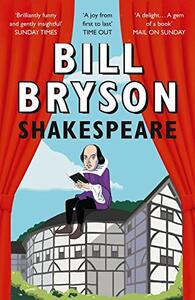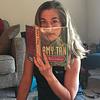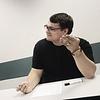Take a photo of a barcode or cover
An excellent book that provides the historic evidence for what is known about Shakespeare, and in so doing an interesting look at Elizabethan and Jacobean England. The book also gives you an understanding of how hard it is to penetrate that far into the past to learn the details of a single individual's life, or the architectural details of a theater.
Saggio piacevole e completo sulla figura del Bardo, propone riflessioni interessanti e per nulla scontate.
Direi adatto anche per chi sta facendo ora la conoscenza di questo grande autore e non è troppo navigato.
Ho ascoltato la versione audiolibro letta dallo stesso Bryson.
Questa però la consiglierei solo a chi ha un livello piuttosto alto di inglese, dato che non è semplicissimo da seguire.
Direi adatto anche per chi sta facendo ora la conoscenza di questo grande autore e non è troppo navigato.
Ho ascoltato la versione audiolibro letta dallo stesso Bryson.
Questa però la consiglierei solo a chi ha un livello piuttosto alto di inglese, dato che non è semplicissimo da seguire.
This should be a companion book in every class that covers Shakespeare. Wonderful.
funny
informative
fast-paced
There are very few definitively known facts about William Shakespeare, and over the centuries, scholars have speculated exhaustively on possible events in his life and how they may have impacted his writing. (E.g.- some think that he traveled to Italy during one of England's periodic plague epidemics, and this is why he wrote several plays set in Italy.) This book seeks to clarify what is actually known about Shakespeare's life, while also describing and evaluating some of the theories. It is a light, brief account of the man's life- not so much his writing- and is intended for the general public and not for historians or scholars of literature. I found the book largely enjoyable, even if Bryson didn't quite manage to suppress his fanboyism... I suppose that one just has to resign oneself to a certain amount of adulation when Shakespeare is the topic.
funny
informative
reflective
fast-paced
informative
relaxing
informative
relaxing
medium-paced
Right up front Bryson tells you we hardly know anything about Shakespeare. So, you figure, how'd he manage to write 200+ pages? It's a cutural study of the period, and a good one. It's in his usual snappy style, but if you've ever read an academic book about the period, you can skip it. If you haven't, this is a good one.
funny
informative
medium-paced






